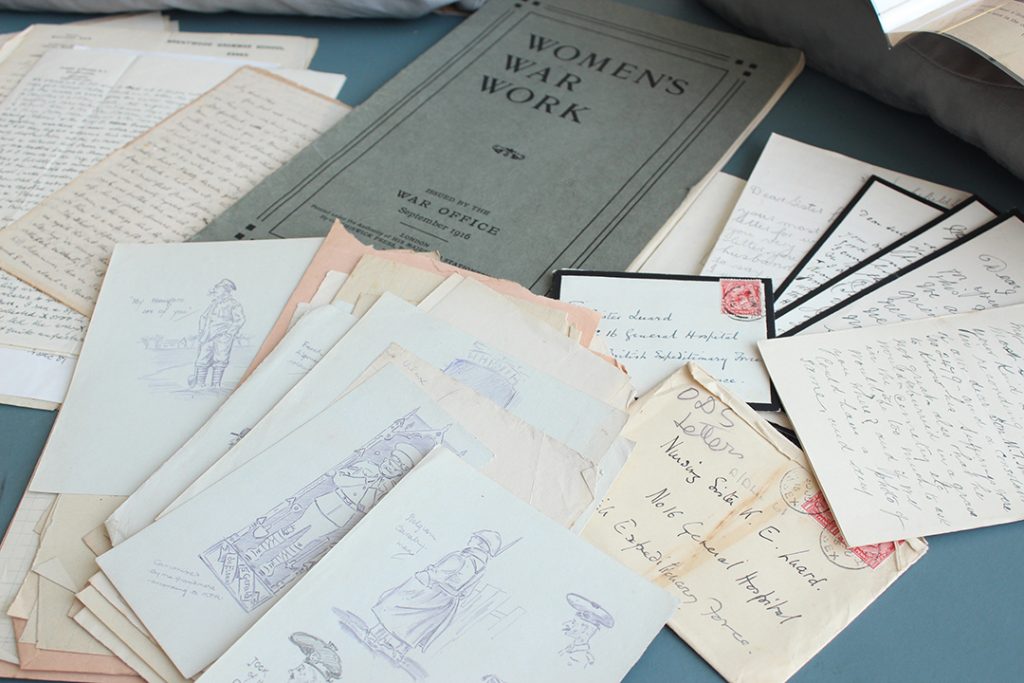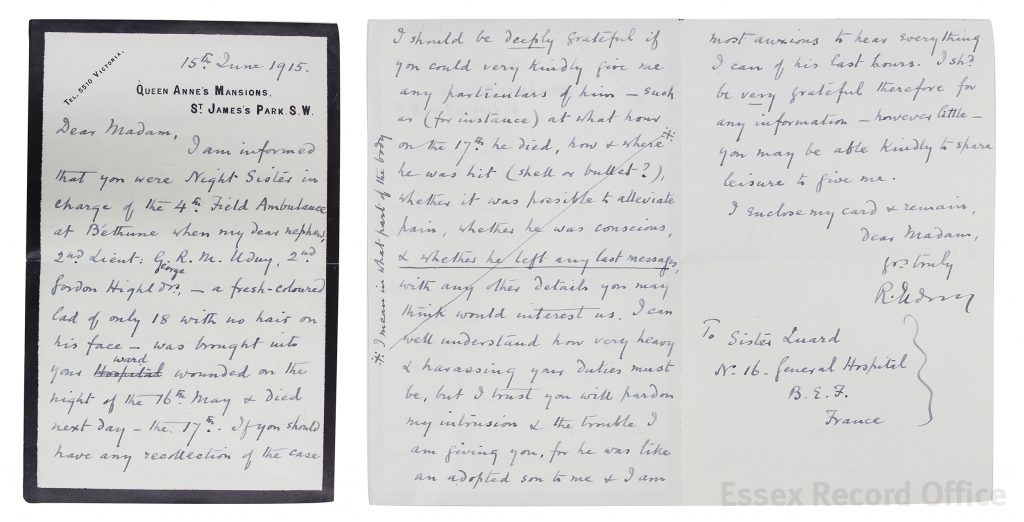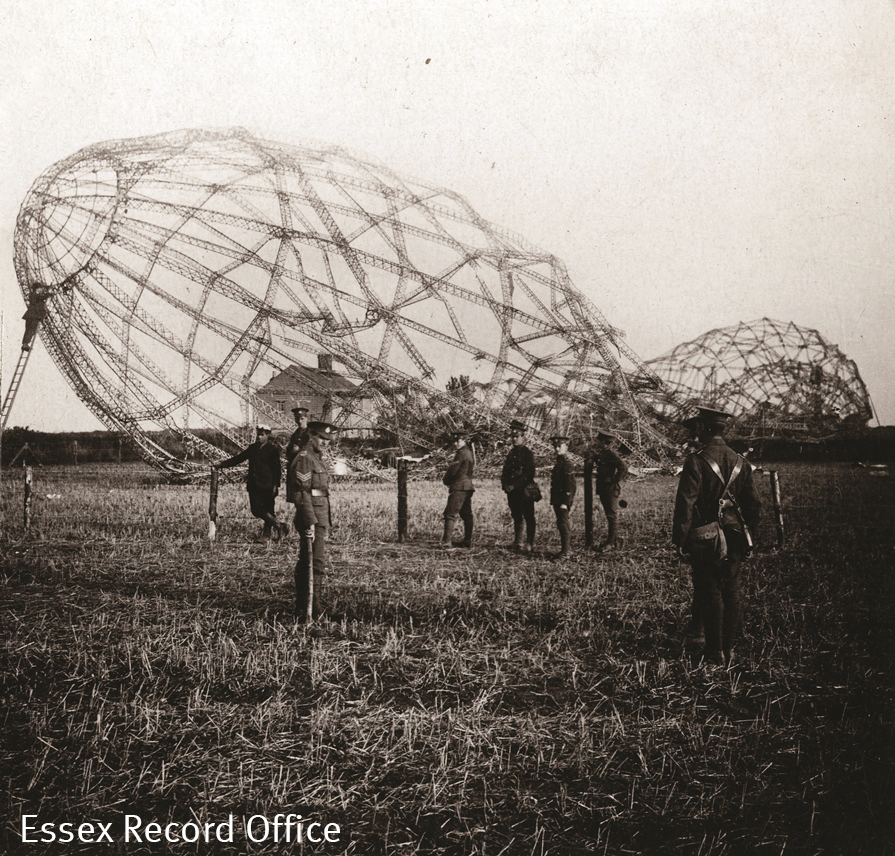Archives are packed with people’s stories. From the everyday to the extraordinary, the records carefully looked after in our archives give us insights into the life experiences of individuals, families, and whole communities over the last several centuries.
Some of the most powerful stories in the records we look after at ERO are of people’s experiences of the First World War. From the official to the personal, First World War records are full of stories that deserve to be discovered and shared.

Both official and personal records can give us fascinating insights into people’s experiences during the First World War
One of the privileges of working at ERO has been being able to explore the First World War stories within our collections, and to share them on this blog.
Alf Webb, for example, joined up in 1914 at the age of 17, and served throughout the whole of the war. In 1992 he talked to a class of primary school students about his recollections of both the mundane details and the harsh realities of the war, from the lice which infested his uniform to the deaths of his friends. Fortunately, the teacher who organised his talk to her class made a recording of Alf’s talk, and deposited a copy with ERO. It has been said that listening to an oral history interview is the closest we can get to time travel, since we hear real people telling us about real events that they experienced.
Listen to extracts of Alf Webb’s recollections of his First World War experiences here.
Sister Kate Luard, meanwhile, was on the first boat she could get on to France after the outbreak of the war. She served on the Western Front throughout the war, working in some of the most dangerous conditions nurses faced. Somehow she found time to write home frequently, and her letters provide highly personal insights into her experiences as a nurse. One little bundle of letters she kept were written by relatives of men who she had nursed while they died. These letters often thank her for her care of sons, brothers and nephews, and ask about the men’s last days.
Read more about Kate Luard in our previous posts about her.

Richard Udney wrote to Sister Kate Luard in June 1915 to ask her about the death of his 18-year-old nephew, 2nd Lieut. George Udney. Click for a larger version. (D/DLu 61)
Other records tell us about how those at home managed through the tough years of the war, facing a very real prospect of invasion and potentially severe food shortages, while having to cope with the departure and often loss of loved ones.
In the decades running up to the First World War, Britain had imported more and more of its food. When Britain entered the war on 4 August 1914, the country had enough wheat in stock to last just 125 days. Farmers at home were faced with the huge challenge of growing enough to feed the nation, with a shortage of male agricultural workers and a shortage of horses.
The home front also faced aerial bombardment for the first time. On the night of 23 September 1916 two Zeppelins crash landed in Essex, one in Little Wigborough, where the crew walked away largely unharmed, and one in Great Burstead, where all men on board were killed.
Read eyewitness accounts of the Zeppelin crashes here.

The Zeppelin which crashed at Little Wigborough, 23 September 1916
There is some light relief amongst the darkness of so many war stories. In February 1917 the Chelmsford Chronicle reported on a ‘Romantic Essex War Wedding’, in which Miss Clara Elizabeth Potter and Driver Charles T. Kidd had married, having never met but only communicated by letter.
Read the Chronicle’s account of Clara and Charles’s romance here.
What stories are still waiting to be discovered?
If you have an idea for a project that would highlight a forgotten or unknown piece of your local First World War history, join us on Friday 8 December 2017 for a day of inspiration and practical advice on how to make your ideas into a reality.
The day will include an introduction to Heritage Lottery funding streams for First World War projects, and showcase existing community First World War research projects taking place in Essex. There will also be a presentation by the Everyday Lives in War First World War Engagement Centre on how they can support independent researchers and community groups researching the First World War, and an insight into the resources and support available from the Essex Record Office.
Find out more about the day and book your place here.

